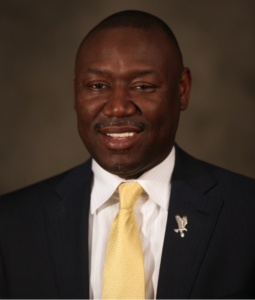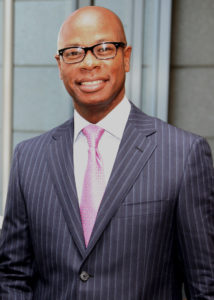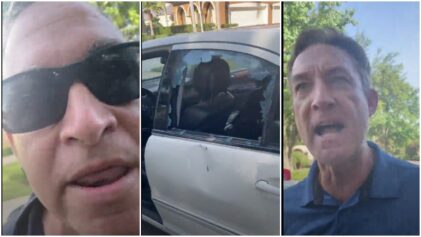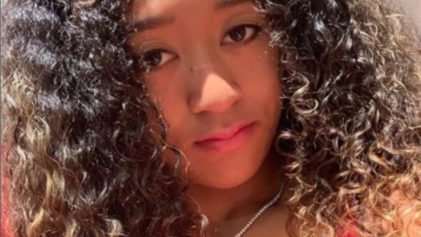A new poll released by the National Bar Association (NBA)—the nation’s oldest and largest national association of predominantly African-American lawyers and judges—sounds the alarm on the state of race relations and divergent views on how Black people are treated by law enforcement. The poll comes at a pivotal time, in which the nation is paying attention to the killing of unarmed Black people by law enforcement, leading to the growth of a new Black protest movement and calls for police reform from communities plagued by police violence.
The NBA partnered with Sachs Media Group to produce the survey, and announced the findings with the National League of Cities, which has undertaken The Race, Equity and Leadership (REAL) initiative to improve race relations across the country. The purpose of the REAL initiative is to provide local officials with the tools necessary to “address the historical, systemic and structural barriers caused by racism and inequities,” and bolster the leadership of local elected officials to address racial inequality and create more inclusive communities.
The results of the poll suggest both a reason for encouragement and a need for concern. For example, both Blacks and whites (58 percent and 76 percent, respectively) believe race relations are better today than 50 years ago. However, a minority of both groups—38 percent of Blacks and 47 percent of whites—believe race relations have improved over the past decade.
In addition, respondents differed based on race when asked who they feel is most responsible for the inequities between white and Black communities. While 57 percent of white respondents said whites and Blacks are equally responsible, one-third of Blacks held both races responsible, and another third assigned blame to “white people of the past.”
Meanwhile, only one-quarter of Americans polled think the U.S. is closer to achieving racial equality. Older whites are the most optimistic—27 percent of whites age 50 to 64 and 24 percent of those age 65 and above believe America is closer to achieving racial equality. However, merely one-fifth of Black millennials hold a positive view on the subject. Younger people also expressed avoiding more interactions with people of different backgrounds than their elders.
Blacks and whites express equal degrees of curiosity (17 percent) when interacting with strangers who are not members of their own racial group, but Blacks also feel caution, mistrust, fear and hatred at much higher rates in those circumstances.
Overwhelming majorities across race—78 percent of Blacks and 88 percent of whites maintain that the news media fuels racial tensions, with fewer than a third of each agreeing that the media fairly portrays people based on race.
Further, a majority of Blacks and whites say Black people are treated unfairly by police, although 88 percent of Blacks and 59 percent of whites feel this way. A majority of both groups—67 percent of Blacks and 52 percent of whites—also believe police are misunderstood by Black people. The geographic breakdown of attitudes on race and policing are revealing. In the South, 90 percent of Blacks and only 55 percent of whites believe Blacks are treated unfairly by police. Similarly, in the Midwest, 92 percent of Blacks and 57 percent of whites hold this opinion, with a 87-61 split in the West. Meanwhile, the Northeast maintains the most narrow divide, with 74 percent of Blacks and 63 percent of whites.
Other poll results were revealing as well. For example, nearly two-thirds of White participants said racism does not require prejudicial feelings to be acted on, while slightly more than half of Black respondents regarded racism as attitude combined with action.
“Our national conversation about race has been going on for a long time, and it’s encouraging to see signs of progress. However, 50 years of conversation is too long without seeing more movement and, to a certain extent regression. This survey shows that clearly there remains work to be done,” said Benjamin Crump, president of the NBA.
Crump, a lawyer who has represented the families of Trayvon Martin, Michael Brown and others, has been on the forefront of matters concerning police brutality and racial violence.
“These findings should concern all citizens and public officials who still see the need to build a greater sense of community after so many years of policy progress,” said Clarence Anthony, executive director of the National League of Cities. “There is significant work to be done – especially among young adults who don’t see positive change around them. While they’ve grown up at a time when we’ve made considerable advances in creating more racially inclusive communities, clearly we all have a lot more work to do.”
The NBA survey comes the same week that the city of Baltimore settled with the family of Freddie Gray for $6.4 million, in relation to the killing of the Black man in police custody earlier this year. Six officers were indicted and face trial in his death. This, as a federal jury awarded $5.5 million to the family of Kenneth Smith, another Black man who was killed by a Cleveland police officer in 2012. The violence against Black people by police in recent years, including the fatal shooting of Michael Brown by police in Ferguson, Missouri last year, has led to the birth of the #BlackLivesMatter movement, which has challenged white supremacy and demanded reform in the criminal justice system.
Fifty years after the urban rebellions and social protests which brought about landmark civil rights legislation and efforts to fight inequality, foster racial inclusion and create equal opportunity, this recent survey indicates there is much more work to be done.




